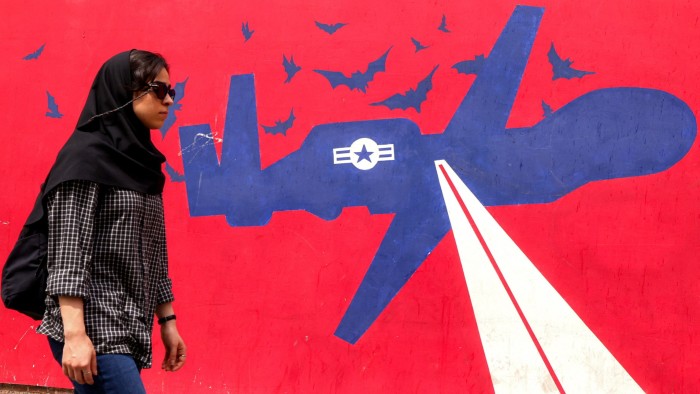Unlock the White House Watch newsletter for free
Your guide to what Trump’s second term means for Washington, business and the world
The writer is a professor at Johns Hopkins University and author of ‘Iran’s Grand Strategy: A Political History’
Nuclear talks between Iran and the US have reached an impasse over Iran’s right to produce and stockpile low-enriched uranium. America first signalled that it was open to some enrichment before insisting that Iran must relinquish that right. Washington has reportedly now accepted temporary enrichment of a limited quantity of uranium to up to 3 per cent, after which Iran must give up the right to enrich on its soil and dismantle the capability to do so.
Tehran, however, sees enrichment as an inalienable right and Iran’s Supreme Leader, Ayatollah Ali Khamenei, has hit back at the US proposal. Iran is willing to allow international inspection of its programme to guarantee it is not developing weapons. But it insists low-enriched uranium is necessary for energy, industrial and medical needs — and that it cannot rely on others to supply it.
US President Donald Trump worries that unless Iran gives up enrichment, his nuclear agreement would be the same as Barack Obama’s — one Trump characterised as “the worst deal ever” before abandoning it. Trump clearly wants a deal, and could be calculating that greater international pressure and the threat of Israeli military action will force Iran to give in.
That is a risky gambit. Without progress, the International Atomic Energy Agency could formally censure Iran this month. France and the UK could then trigger retaliatory UN sanctions. If that happens, Iran has threatened to leave the Non-Proliferation Treaty (NPT). That would precipitate an international crisis, ending inspections, bringing Iran closer to weaponisation — and a possible war with the US.
The danger is that Washington and Tehran could lose control of the escalating crisis. Suddenly, Trump would be forced to face the costs and consequences of war with Iran — which neither he, nor his voters nor America’s Gulf allies want. The path back to diplomacy will become narrower as the march to war gains momentum. Trump has said that conflict would be bad for Iran. But it would also be bad for America and the Middle East.
Iran will not forfeit the right to enrich uranium granted by the NPT. Khamenei has dismissed the US demand as “nonsense” and sees a historical echo of Iran’s confrontation with the US and Britain in 1953 over its sovereign rights to oil, which led to a US-UK backed coup. Iran has spent billions, and endured punishing sanctions, to build its nuclear infrastructure into a vast industry, supported by a large business and manufacturing network employing thousands. Khamenei’s political base would be unforgiving if he is seen as capitulating.
Iran’s leaders also worry that yielding on enrichment will only embolden the US to demand more — possibly including concessions on Iran’s missile programme, regional presence and the character of its regime. Retaining the right to enrich would give the US a reason to honour a deal. Otherwise, once Iran dismantles its enrichment capability, Trump could again abandon the agreement. Iran needs a deal; its economy is in tatters and more isolation will further batter the country. With a leadership succession looming and society restless, Khamenei understands that ensuring stability is essential. He’s not willing to accept a US diktat but is hoping to shift Trump’s red line.
Washington and Tehran must avoid brinkmanship and find a compromise that recognises Iran’s right to enrich but in effect circumscribes it. Both sides could then claim victory. One idea is to integrate Iran’s enrichment into a regional nuclear fuel production consortium with other Gulf states. The US could agree that Iran may enrich at home to supply its one nuclear power plant and medical needs, but that the consortium would supply all future nuclear energy needs. This could serve as a bridge to a larger deal that slows the march to war.
